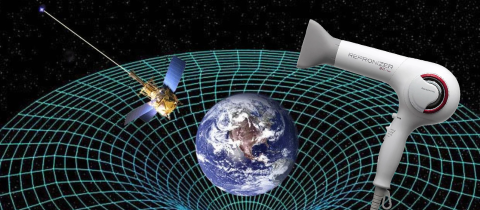In 1957, Edward Shapiro filed a patent for a novel type of “self-luminous paint.” The concept was not new, luminous paints based on radioactive emissions from radium striking a phosphor such as zinc sulfide were introduced in 1917. Watch dials and compasses that glow in the dark proved to be very useful on the front during World War I. After the war, watches and clocks that featured “Undark” paint became popular among the public until it was phased out by the 1960s. By that time it had become clear that the women known as “Radium Girls” who had painted watch dials and habitually pointed their brushes with saliva suffered devastating radiation injuries. Major watchmakers stopped using radium paint and switched to tritium paint.
Tritium is an isotope of hydrogen, meaning that instead of having a nucleus composed of a single proton, it has a nucleus of a proton and two neutrons. This nucleus is unstable and undergoes radioactive decay to form helium. Essentially one of the neutrons releases an electron and becomes a proton. The stream of electrons released is known as “beta radiation” and does not pose the same danger as alpha and gamma emission from radium. But the problem is that tritium is a gas. Shapiro’s challenge was to incorporate tritium into some substance that can be formulated into a paint.
Tritium gas does not occur in nature but can be produced in a nuclear reactor by bombarding lithium with neutrons. When reacted with oxygen, it produces T2O, a form of “heavy water.” A sequence of reactions ends up incorporating the tritium atom from T2O into vinyl acetate that is then polymerized to yield polyvinyl acetate. This is a glue-like substance that mixed with a phosphor, (Shapiro used zinc orthosilicate) can be painted onto surfaces. The beta radiation from tritium makes the phosphor glow. The half-life of tritium is 12 years so the glow will slowly fade.
Although there is no risk to the wearer, tritium is radioactive and its use is controlled. Germany and Switzerland banned the use of tritium paint and most watchmakers discontinued use by 1998. But that doesn’t mean that there are no tritium watches. There is a workaround!
Tritium gas can be used to fill tiny glass tubes that have a phosphor coating on the glass. These are like tiny neon tubes except they do not need an outside source of energy. They can be made small enough to embed in the hands and numerals of a watch. Such tritium watches are not cheap but are prized by divers, pilots, Navy Seals and anyone who wants something a little special. Don’t confuse tritium watches, though, with ones that use strontium aluminate as a glow-in-the-dark substance. While these produce an excellent glow, they have to be activated by previous exposure to light. Then of course you have watch faces that are illuminated by battery power, like the Apple Watch. Great illumination, lots of functions, but not exactly stylish.







